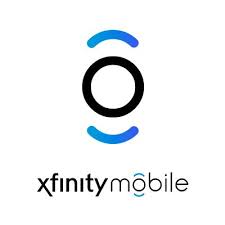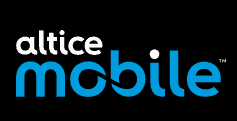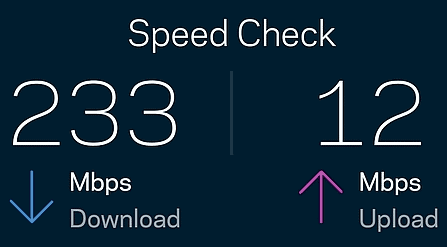 Internet providers are preparing to cut off late-paying and non-paying customers as early as June 30, as the Federal Communications Commission’s “Keep America Connected” pledge expires next week.
Internet providers are preparing to cut off late-paying and non-paying customers as early as June 30, as the Federal Communications Commission’s “Keep America Connected” pledge expires next week.
In March, FCC Chairman Ajit Pai invited providers to agree to waive late fees and put off disconnections and usage overlimit charges for several months as a result of the sudden economic shutdown due to the COVID-19 coronavirus. As the pledge expires, Pai is asking providers not to immediately disconnect customers who are past due, if they agree to enroll in payment plans to pay off accrued balances. But Pai ultimately stood on the side of the nation’s multi-billion dollar phone and cable companies as he expressed his understanding why some customers will be cut off anyway and turned over to collection agencies as early as next week.
“Broadband and telephone companies, especially small ones, cannot continue to provide service without being paid for an indefinite period of time; no business in any sector of our economy could,” Pai said in a statement.
Some customers have accumulated past due balances of over $1,000 in the past four months, when one combines wireless, cable-TV, internet, and landline charges. As a result, some large providers recognize the need for long-term repayment plans if they hope to preserve customer relationships. With unemployment over 13%, even their most loyal customers may find it difficult to keep up on bills that often exceed $100 a month, and are often much more.
 Those customers that lose service for non-payment may forfeit future participation in low-cost internet programs for those on public assistance, and cannot restart service without coming to terms on past due balances. That could leave desperate customers at risk of losing access to job-seeking information, education, and news about the ongoing pandemic.
Those customers that lose service for non-payment may forfeit future participation in low-cost internet programs for those on public assistance, and cannot restart service without coming to terms on past due balances. That could leave desperate customers at risk of losing access to job-seeking information, education, and news about the ongoing pandemic.
Some providers are gradually announcing new programs designed to keep service on, but only if customers contact providers and agree to commit to a repayment contract.
AT&T: The company disclosed 156,000 customers are currently enrolled in Keep America Connected-related programs. AT&T expects full payment of past due charges as early as June 30, or up to 90 days after the first past-due notice was issued, whichever is later. Customers can also keep service turned on by contacting AT&T and setting up an alternate payment arrangement.
 Charter/Spectrum: The company has announced it will forgive a portion of past due balances and not require full repayment, if the customer or his/her job was directly impacted by the coronavirus. Spectrum’s offer of 60 days of free internet service introduced in March was accepted by at least 400,000 customers. But for most, the offer has since expired. Spectrum has worked to convert those at the end of the free offer into paid customers, but won’t disclose how much success they have had.
Charter/Spectrum: The company has announced it will forgive a portion of past due balances and not require full repayment, if the customer or his/her job was directly impacted by the coronavirus. Spectrum’s offer of 60 days of free internet service introduced in March was accepted by at least 400,000 customers. But for most, the offer has since expired. Spectrum has worked to convert those at the end of the free offer into paid customers, but won’t disclose how much success they have had.
 Comcast: Customers enrolled in the Xfinity Assistance Program are being given the option of repaying past due amounts in up to 12 equal monthly installments. After a repayment arrangement is made, some customers are persuaded to downgrade service to more affordable plans until past due amounts are repaid. Comcast’s offer of 60 days of free internet service has ended for most customers that enrolled shortly after it was introduced. Comcast has not announced a date when its 1,000 GB usage cap is scheduled to return in most service areas.
Comcast: Customers enrolled in the Xfinity Assistance Program are being given the option of repaying past due amounts in up to 12 equal monthly installments. After a repayment arrangement is made, some customers are persuaded to downgrade service to more affordable plans until past due amounts are repaid. Comcast’s offer of 60 days of free internet service has ended for most customers that enrolled shortly after it was introduced. Comcast has not announced a date when its 1,000 GB usage cap is scheduled to return in most service areas.
![]() T-Mobile: For many, service will terminate if an account is well past due. Customers who want to keep their service must call T-Mobile to make payment arrangements, but T-Mobile did not disclose any formal repayment plans or payment forgiveness. It is imperative that customers call and discuss past due accounts before service is switched off.
T-Mobile: For many, service will terminate if an account is well past due. Customers who want to keep their service must call T-Mobile to make payment arrangements, but T-Mobile did not disclose any formal repayment plans or payment forgiveness. It is imperative that customers call and discuss past due accounts before service is switched off.
 Verizon: Verizon will continue service for “hundreds of thousands of customers” that enrolled in the Keep America Connected pledge program, as long as they agree to make regular payments as part of a special repayment plan that will be introduced for these customers in July. Customers will be billed a portion of their past due amounts along with current service charges until repayment has been made in full.
Verizon: Verizon will continue service for “hundreds of thousands of customers” that enrolled in the Keep America Connected pledge program, as long as they agree to make regular payments as part of a special repayment plan that will be introduced for these customers in July. Customers will be billed a portion of their past due amounts along with current service charges until repayment has been made in full.
Of the country’s largest providers, only Charter/Spectrum has agreed to forgive some past due balances outright. Others will expect to be repaid and are likely to suspend service quickly if repayment plans also fall past due.


 Subscribe
Subscribe Charter Communications is petitioning the Federal Communications Commission for permission to usage cap its internet customers two years before the FCC’s ban on the company imposing data caps runs out.
Charter Communications is petitioning the Federal Communications Commission for permission to usage cap its internet customers two years before the FCC’s ban on the company imposing data caps runs out. The FCC’s 2016 order approving the merger between Charter Communications, Time Warner Cable, and Bright House Networks, with a 7-year prohibition on data caps, was not unanimous. Separate statements from Republican Commissioners Ajit Pai and Michael O’Rielly were highly critical of most of the deal conditions the then-Democratic majority favored. Four years later, Pai now presides as chairman over a Republican-majority FCC that could take a favorable view of Charter’s request to end deal conditions early.
The FCC’s 2016 order approving the merger between Charter Communications, Time Warner Cable, and Bright House Networks, with a 7-year prohibition on data caps, was not unanimous. Separate statements from Republican Commissioners Ajit Pai and Michael O’Rielly were highly critical of most of the deal conditions the then-Democratic majority favored. Four years later, Pai now presides as chairman over a Republican-majority FCC that could take a favorable view of Charter’s request to end deal conditions early. But the FCC remained unconvinced by Charter’s statements. In a review of confidential internal company documents, the FCC found multiple instances where Time Warner Cable had not completely abandoned the idea of data caps, despite multiple high-profile consumer backlashes against the idea.
But the FCC remained unconvinced by Charter’s statements. In a review of confidential internal company documents, the FCC found multiple instances where Time Warner Cable had not completely abandoned the idea of data caps, despite multiple high-profile consumer backlashes against the idea.
 Charter’s Spectrum Community Investment Loan Fund (the Loan Fund) will invest
Charter’s Spectrum Community Investment Loan Fund (the Loan Fund) will invest  With record-breaking unemployment and an economy in tatters, consumers are abandoning high-priced mobile plans and switching to lower priced cable operator mobile plans.
With record-breaking unemployment and an economy in tatters, consumers are abandoning high-priced mobile plans and switching to lower priced cable operator mobile plans. “Given the levels of economic hardship that have accompanied the lockdowns, one can reasonably imagine that these kinds of hyper-aggressive pricing plans won’t have much trouble breaking through to capture market share,” Moffett said in a research note.
“Given the levels of economic hardship that have accompanied the lockdowns, one can reasonably imagine that these kinds of hyper-aggressive pricing plans won’t have much trouble breaking through to capture market share,” Moffett said in a research note. In South Texas, San Benito is one of the communities between Brownsville and McAllen seeing Spectrum’s usual download speed doubled from 100 to 200 Mbps.
In South Texas, San Benito is one of the communities between Brownsville and McAllen seeing Spectrum’s usual download speed doubled from 100 to 200 Mbps.